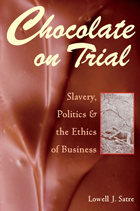
At the turn of the twentieth century, Cadbury Bros. Ltd. was a successful, Quaker-owned chocolate manufacturer in Birmingham, England, celebrated for its model village, modern factory, and concern for employees. In 1901 the firm learned that its cocoa beans, purchased from Portuguese plantations on the island of São Tomé off West Africa, were produced by slave labor.
Chocolate on Trial: Slavery, Politics, and the Ethics of Business is a lively and highly readable account of the events surrounding the libel trial in which Cadbury Bros. sued the London Standard over the newspaper’s accusation that the firm was hypocritical in its use of slave-grown cocoa. Lowell J. Satre probes issues as compelling now as they were a century ago: globalization, corporate social responsibility, journalistic sensationalism, and devious diplomacy.
Satre illuminates the stubborn persistence of the institution of slavery and shows how Cadbury, a company with a well-regarded brand name from the nineteenth century, faced ethical dilemmas and challenges to its record for social responsibility. Chocolate on Trial brings to life the age-old conflict between economic interests and regard for the dignity of human life.
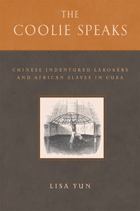
Introducing radical counter-visions of race and slavery, and probing the legal and philosophical questions raised by indenture, The Coolie Speaks offers the first critical reading of a massive testimony case from Cuba in 1874. From this case, Yun traces the emergence of a "coolie narrative" that forms a counterpart to the "slave narrative." The written and oral testimonies of nearly 3,000 Chinese laborers in Cuba, who toiled alongside African slaves, offer a rare glimpse into the nature of bondage and the tortuous transition to freedom. Trapped in one of the last standing systems of slavery in the Americas, the Chinese described their hopes and struggles, and their unrelenting quest for freedom.
Yun argues that the testimonies from this case suggest radical critiques of the "contract" institution, the basis for free modern society. The example of Cuba, she suggests, constitutes the early experiment and forerunner of new contract slavery, in which the contract itself, taken to its extreme, was wielded as a most potent form of enslavement and complicity. Yun further considers the communal biography of a next-generation Afro-Chinese Cuban author and raises timely theoretical questions regarding race, diaspora, transnationalism, and globalization.
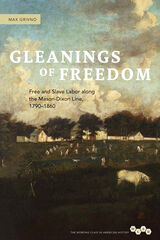
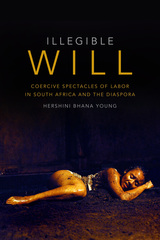

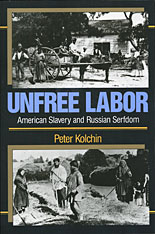
Two massive systems of unfree labor arose, a world apart from each other, in the late sixteenth and early seventeenth centuries. The American enslavement of blacks and the Russian subjection of serfs flourished in different ways and varying degrees until they were legally abolished in the mid-nineteenth century. Historian Peter Kolchin compares and contrasts the two systems over time in this magisterial book, which clarifies the organization, structure, and dynamics of both social entities, highlighting their basic similarities while pointing out important differences discernible only in comparative perspective.
These differences involved both the masters and the bondsmen. The independence and resident mentality of American slaveholders facilitated the emergence of a vigorous crusade to defend slavery from outside attack, whereas an absentee orientation and dependence on the central government rendered serfholders unable successfully to defend serfdom. Russian serfs, who generally lived on larger holdings than American slaves and faced less immediate interference in their everyday lives, found it easier to assert their communal autonomy but showed relatively little solidarity with peasants outside their own villages; American slaves, by contrast, were both more individualistic and more able to identify with all other blacks, both slave and free.
Kolchin has discovered apparently universal features in master–bondsman relations, a central focus of his study, but he also shows their basic differences as he compares slave and serf life and chronicles patterns of resistance. If the masters had the upper hand, the slaves and serfs played major roles in shaping, and setting limits to, their own bondage.
This truly unprecedented comparative work will fascinate historians, sociologists, and all social scientists, particularly those with an interest in comparative history and studies in slavery.
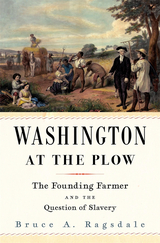
Winner of the George Washington Prize
A fresh, original look at George Washington as an innovative land manager whose singular passion for farming would unexpectedly lead him to reject slavery.
George Washington spent more of his working life farming than he did at war or in political office. For over forty years, he devoted himself to the improvement of agriculture, which he saw as the means by which the American people would attain the “respectability & importance which we ought to hold in the world.”
Washington at the Plow depicts the “first farmer of America” as a leading practitioner of the New Husbandry, a transatlantic movement that spearheaded advancements in crop rotation. A tireless experimentalist, Washington pulled up his tobacco and switched to wheat production, leading the way for the rest of the country. He filled his library with the latest agricultural treatises and pioneered land-management techniques that he hoped would guide small farmers, strengthen agrarian society, and ensure the prosperity of the nation.
Slavery was a key part of Washington’s pursuits. He saw enslaved field workers and artisans as means of agricultural development and tried repeatedly to adapt slave labor to new kinds of farming. To this end, he devised an original and exacting system of slave supervision. But Washington eventually found that forced labor could not achieve the productivity he desired. His inability to reconcile ideals of scientific farming and rural order with race-based slavery led him to reconsider the traditional foundations of the Virginia plantation. As Bruce Ragsdale shows, it was the inefficacy of chattel slavery, as much as moral revulsion at the practice, that informed Washington’s famous decision to free his slaves after his death.
READERS
Browse our collection.
PUBLISHERS
See BiblioVault's publisher services.
STUDENT SERVICES
Files for college accessibility offices.
UChicago Accessibility Resources
home | accessibility | search | about | contact us
BiblioVault ® 2001 - 2024
The University of Chicago Press









